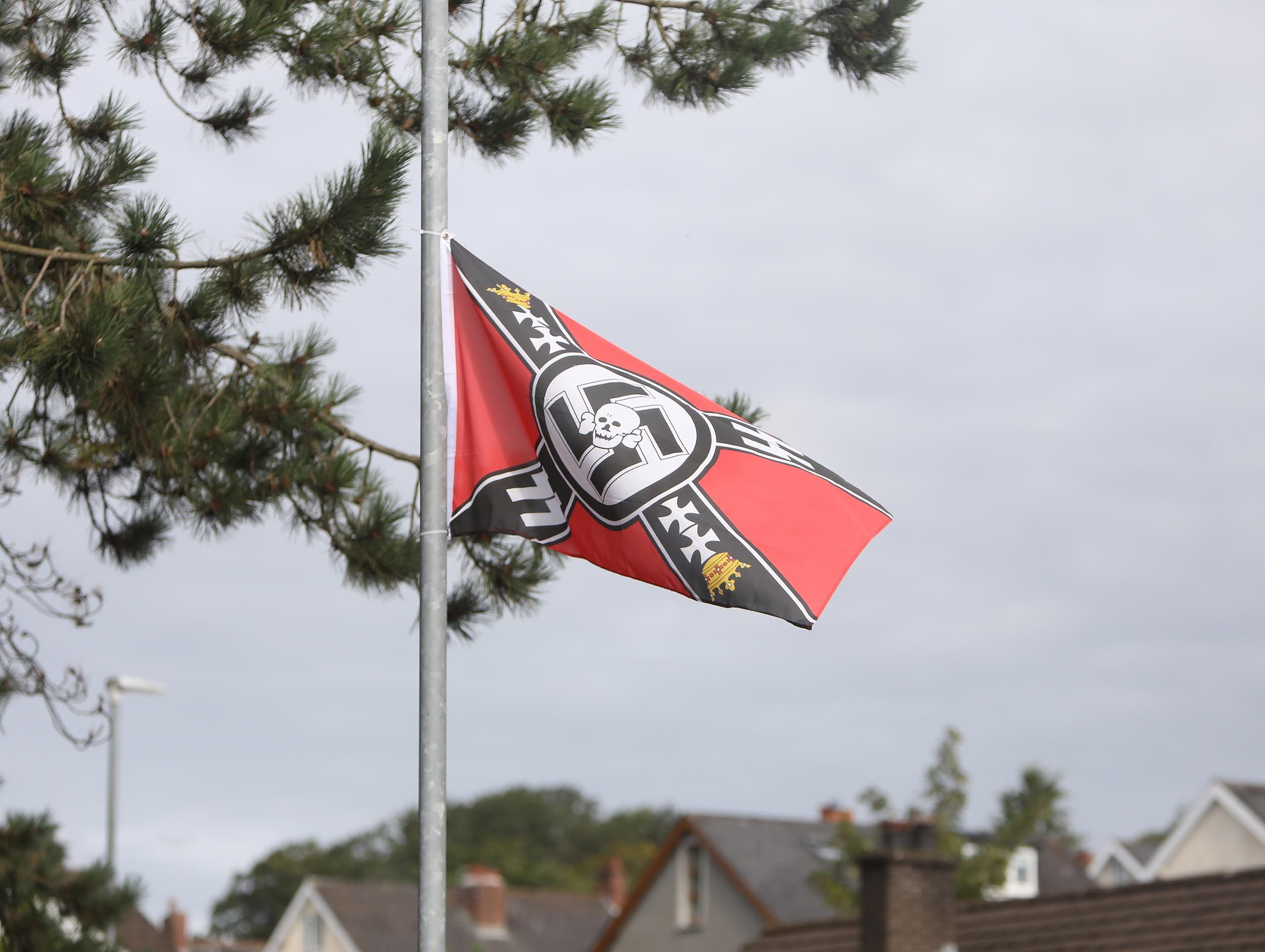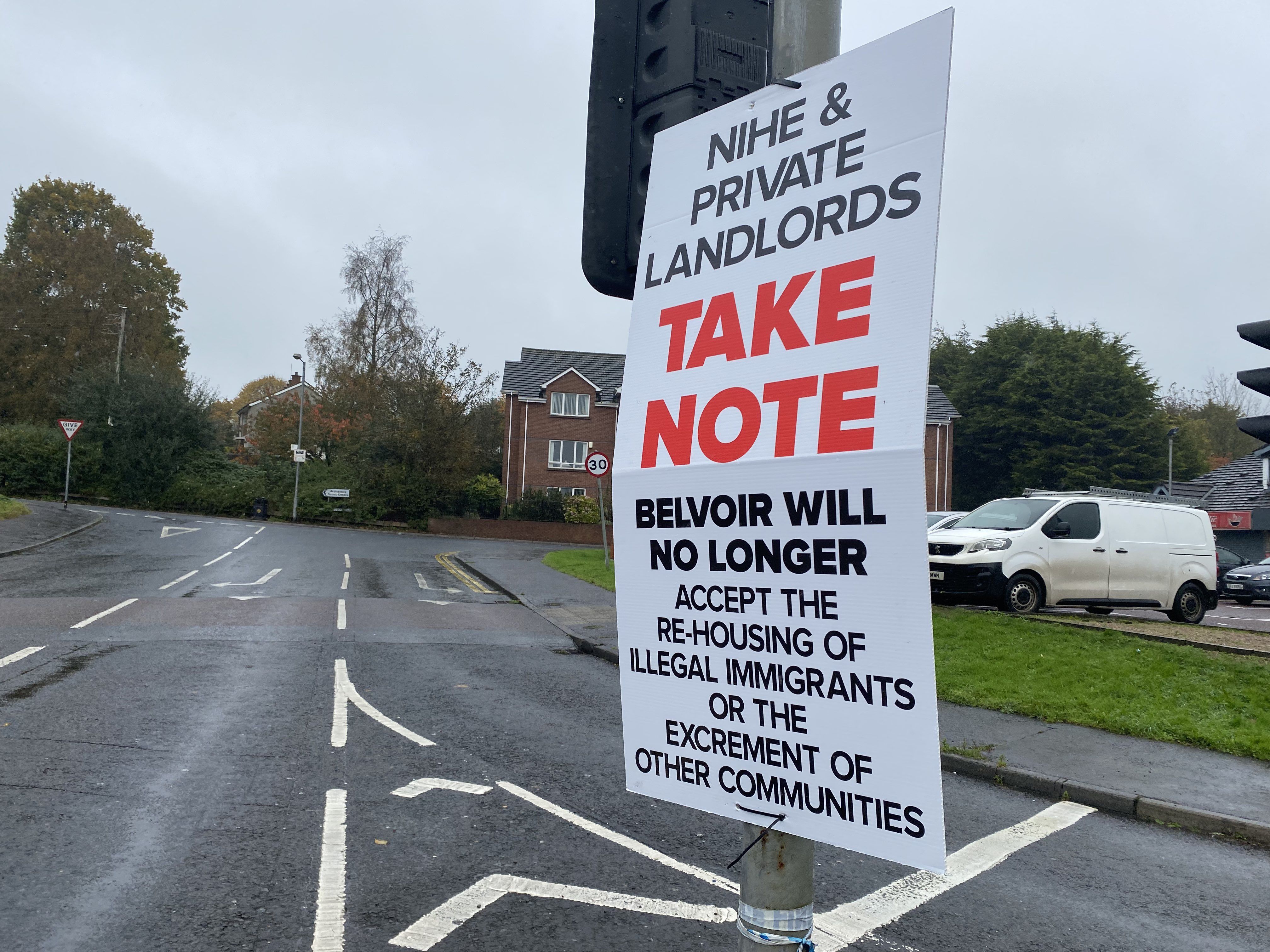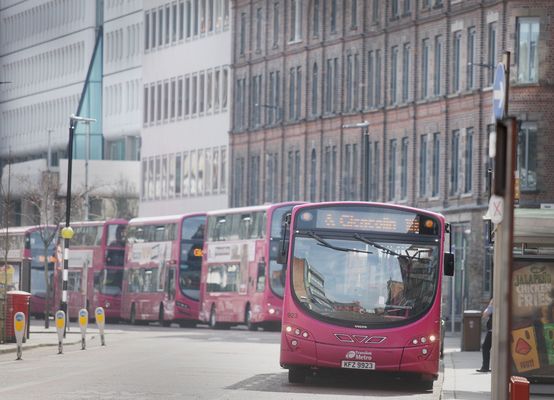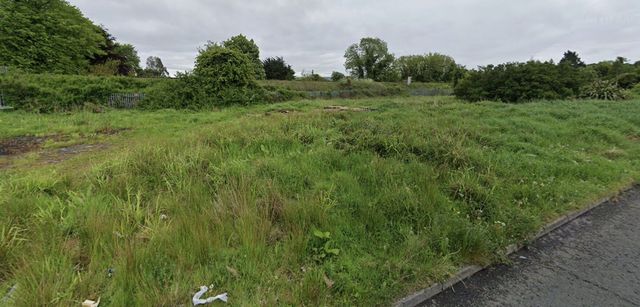A NEW study across Ireland has found that a majority of people view hate crime as a ‘serious and growing problem’.
The new study undertaken by Queen’s University and the University of Limerick titled ‘Public Understandings of Hate Crime: Ireland, North and South project’.
The study found that the majority of the public in the North and South believe hate crime to be a serious problem, with a perception that hate crime is increasing across the island.
HATE: Nazi flags including this one bearing the Waffen SS logo were recently erected outside a Mosque in Dunmurry
The research found that the public are aware of direct and indirect harms of hate crime and the majority of the public in both parts of the island appreciate the fact that hate crimes are more likely to have a psychological effect on their victims and that hate crimes spread fear and isolation among minority communities.
A clear majority of the general public perceived the current responses to tackling hate crime to be ineffective. Only 18 per cent of the public surveyed in the North thought that the PSNI respond effectively to hate crime, whilst only 20 per cent believe that the courts respond effectively.
There is a high level of public support in the North and South for the protection of a broad range of characteristics under hate crime legislation.
The study also found that there are gaps in public understanding surrounding current hate crime legislation, with the majority of the public in the North incorrectly believing that a hate crime will be recorded as such on an individual’s criminal record.
FEAR: Posters recently erected in the loyalist Belvoir estate were condemned for being hate crimes
Speaking about the findings, Dr Kevin J. Brown from the School of Law at Queen’s said: “This survey, the first of its kind on an all-island basis, it has much to tell us about public views on hate crime.
“The findings show that a clear majority of the population, North and South, appreciate the harms to victims and wider society that hate motivated criminality can cause. The public perceive current responses to hate to be inadequate and are supportive of changes to allow authorities to tackle hate more effectively. This report provides convincing evidence in support of implementing balanced reforms to challenge hate on both sides of the border.”
The study also also measured levels of prejudice against individuals due to their racialised identity, ethnicity, religion, sexuality, gender identity, disability, community background (in the North) as well as other commonly targeted identities.
INTIMIDATION: A house in Donegall Pass was attacked last year in a racist attack
Professor Jennifer Schweppe, Professor of Law at University of Limerick and co- said: “This research is timely in showing public support for the inclusion of marginalised groups in the scope of the protection of hate crime legislation generally, and it is particularly heartening to see such public support for the inclusion of transgender people in hate crime legislation.
“For the first time internationally, the stigma of a conviction for a crime with an associated hate element was measured: people are less likely to employ someone with a conviction for a hate crime, and less likely to welcome them into their neighbourhood. This is something that legislators must consider when introducing or amending legislation as we are proposing to do on the island.”
GRAFFITI: The racist slogan 'Irish Lives Matter' was recently daubed outside the Kennedy Centre
Professor Amanda Haynes, Professor of Sociology at University of Limerick said: “While public opinion should not determine legislation, public awareness and understanding are important to the effectiveness of the criminal law.
“Our research shows that there is currently a lot of misinformation around the topic of hate crime across the island of Ireland. Such shortfalls in the public’s awareness of current policy responses is concerning”.
The study was funded by the Irish Research Council New Foundations programme and the Department of An Taoiseach Shared Island initiative.







